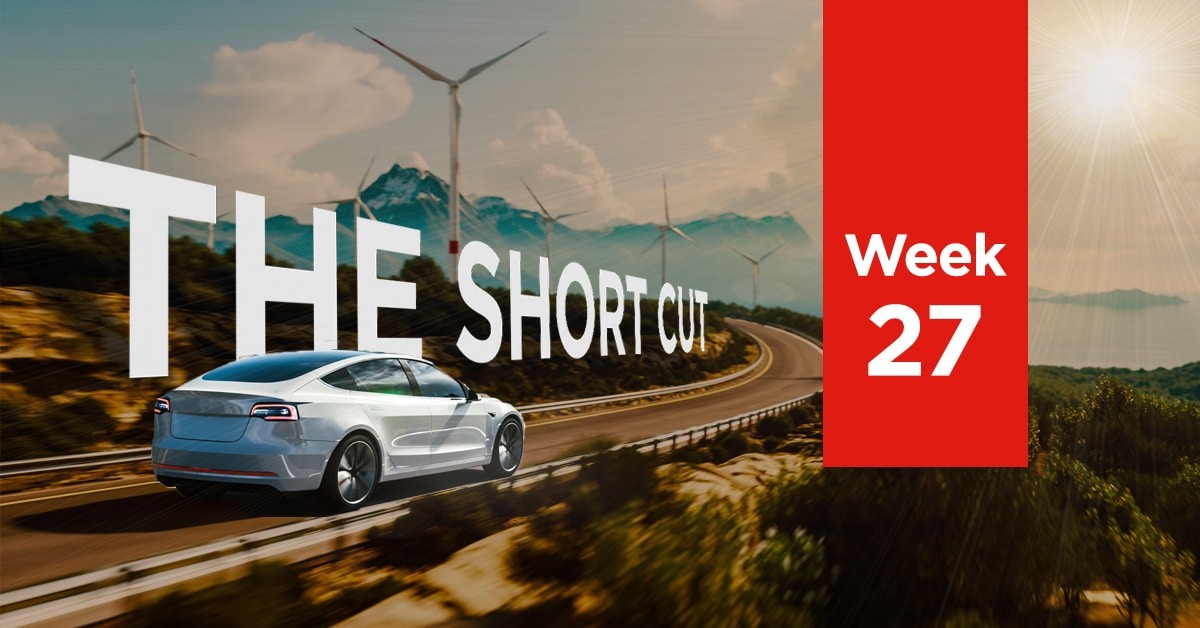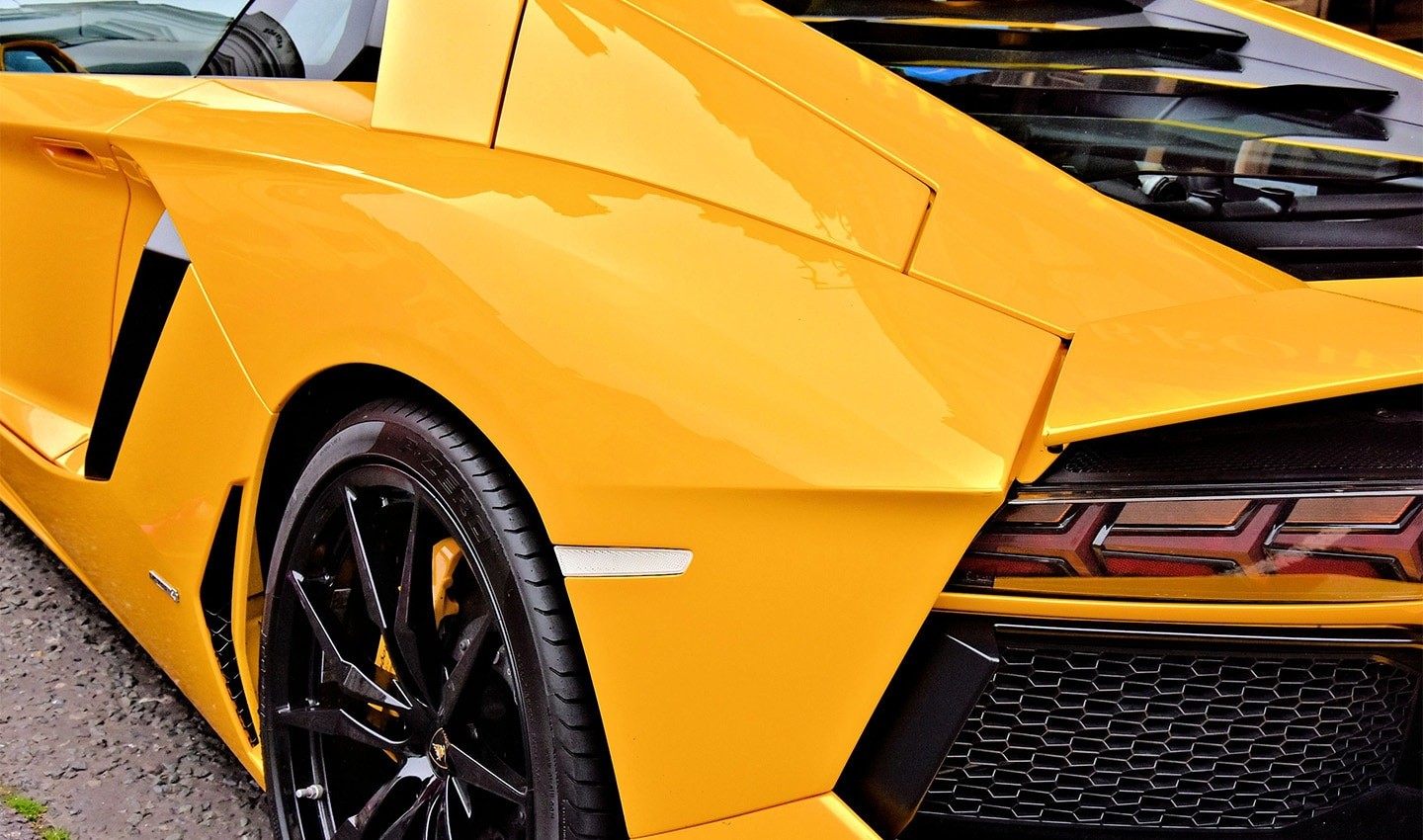The Short Cut: It’s time supercars went electric, and more
&w=256&q=90)

Another week, another Short Cut! In this week’s edition we learn how luxury supercars are no longer the privileged elite of the EU when it comes to fossil fuel legislation, and the UK has sold half a million EVs as of June.
Luxury speedsters need to go electric quicker
This week, the EU agreed drafted legislation to ban the sale of petrol and diesel cars by 2035, the Guardian reports. The EU ignored pleas from Italy for the ‘Ferrari exception,’ which would have allowed the supercar industry to keep on churning out petrol powered vehicles. This is a formal green light for legislation that has been in the works for some time now.
The supercar industry is failing to keep up in the transition to EVs, with little investment or research into battery technology. The 16 hours of negotiations in Luxembourg this week shows how much of a grave error this was.
UK policy manager, Mark Finch, said that this was telling all supercar makers to “take electric seriously now,” and that “some companies are going faster than others, but there’s no hiding that the future is electric and if they want to grab that market share, they have to do it now.”
Ferrari is due to release its first EV in 2025. Perhaps by 2035 supercars won’t be burning up the tarmac but shocking it instead.

The EU agreed drafted legislation to ban the same of petrol and diesel cars by 2035.
Never not problematic: The EV industry is in danger
Automakers are making the EV transition; electric is becoming the new normal and demand is only increasing. By all standards, the EV industry should be hitting its stride. Instead, the hefty wait times that accompany these pricey vehicles are threatening the shift to EVs and making it difficult to achieve net zero targets. Supply chain issues aren’t letting up either – the war in Ukraine is further exacerbating the problems caused by the Covid-19 pandemic.
In this Vanity Fair article, Nick Bilton discusses how some automakers have even stopped taking orders for the time being, such as Ford and its Mustang Mach-E SUV. Meanwhile, EV makers such as Rivian are in such demand that some owners are listing their cars of sale at double the price of a new one. As inflation rages on we could witness a stall in luxury EVs unless prices return to normal.
China’s plans to dominate the European EV market
China’s making moves. The country has been amassing influence in the European EV industry, targeting the more affordable end of the market.
Chinese automakers have been entering the EU market for some time now, with brands such as Xpeng, Nio and BYD already present or planning to launch in the EU. According to market analyst, Schmidt Automotive, around 15% of Western Europe’s 1.2 million EVs bought in 2021 were made in China – and that figure is predicted to double to around 90,000 or around 6% of the EV market in the next year. In this piece by Forbes, Neil Winton analyses the growing effect China is having on the European EV market, as well as the effectiveness of EVs produced there.
EV sales in the UK hit half million
Who would have thought: EV sales in the UK hit a total of half a million in June, despite ongoing supply chain issues. Sales are even predicted to surpass France later in the year, the Guardian reports. This shows massive growth – in 2019, only 100,000 EVs were on the road. At present, EVs still only account for 1.2% of cars driving in Britain, but it’s also a promising sign that the regulations set to kick in during 2035, banning petrol and diesel cars, are already doing their job.
According to automotive analyst Matthias Schmidt, the half million point would have been reached earlier had disruptions such as the pandemic not occurred. Britain has had to deal with the effect of Brexit on its emissions targets. Before, it could rely on other, more green focused countries to balance out its emissions. Now, it must look to the future, and bring more EVs onto the road.

EV sales in the UK hit a total of half a million in June.
Toyota’s tax incentives wave goodbye
Toyota has sold its 200,000th plug-in electric vehicle, which means its tax incentive of up to $7,500 in the US will be phased out. The EV tax incentives in the US lower the cost of the EV for the customer, allowing more access to the vehicles which are usually more expensive than an average gas car. The automaker joins the likes of Tesla and GM, who have also triggered this phaseout as well, CNBC reports. This comes as Toyota increases its focus on EVs, with the company having started production on its all electric bZ4X. Starting two quarters after an automaker hits 200,000 EVs sold, the value of the tax incentives are halved every six months until the amount is zero. Toyota will reach that number by October 2023.
Meanwhile, the CEOs of General Motors, Ford, Stellantis and Toyota Motor North America have proposed that Congress remove the cap on tax incentives, increasing the number of EVs that would be sold before the phaseout is triggered. Those companies would then have the benefit of lower costs to attract more customers. Other automakers are approaching the 200,000 milestone: by the end of 2021, Nissan was at 166,000 EVs sold, and Ford hit 157,000 EVs. So we should see more carmakers hit the threshold before the year is out.
People also read
)
How maps can save connected cars from data outages
)
Chaotic airports or congested roads? How Europe will travel in 2022
)
Navigation SDK: Powering developers and drivers for fleet and logistics
* Required field. By submitting your contact details to TomTom, you agree that we can contact you about marketing offers, newsletters, or to invite you to webinars and events. We could further personalize the content that you receive via cookies. You can unsubscribe at any time by the link included in our emails. Review our privacy policy.